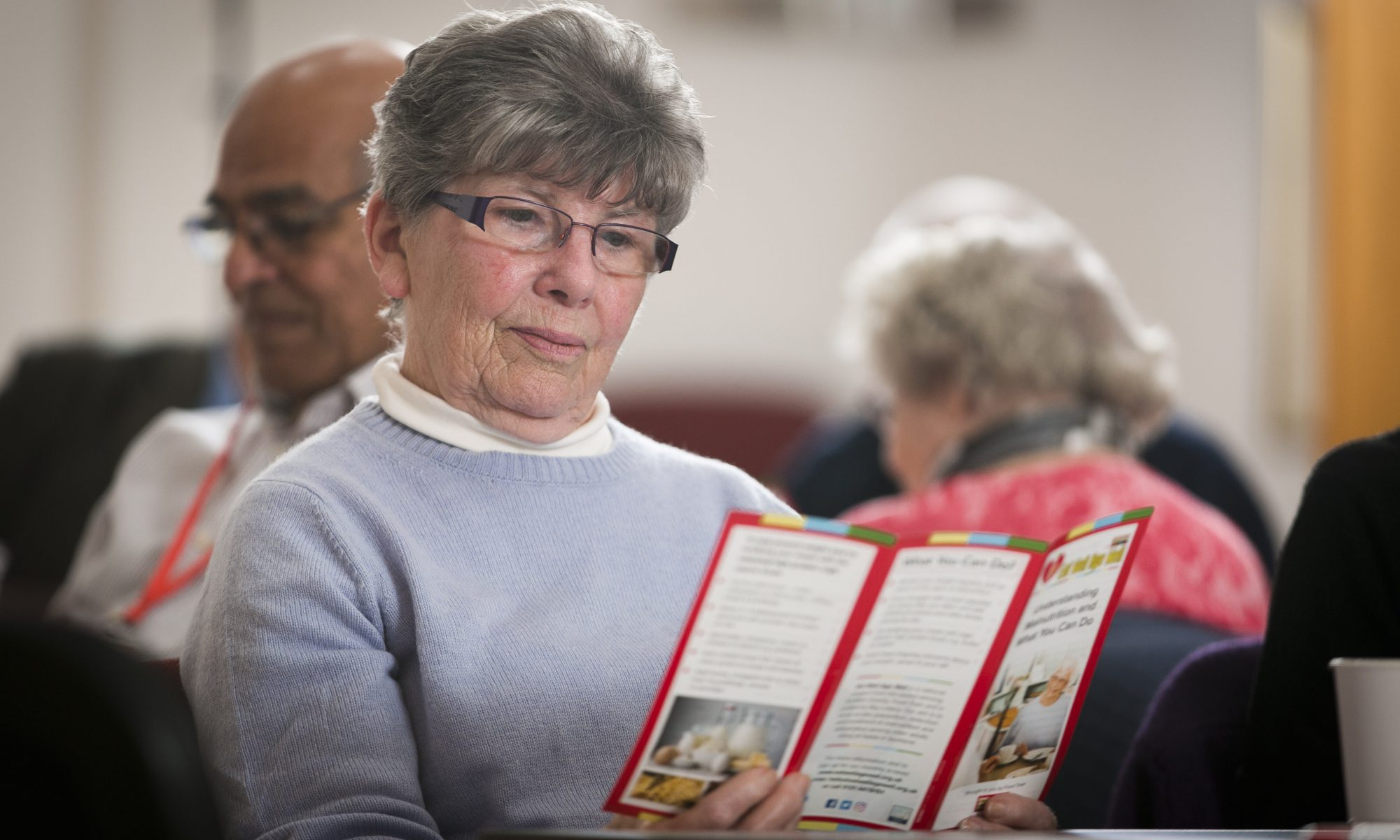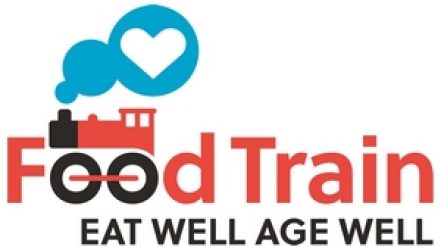Written by Tilly Robinson-Miles, Impact & Policy Officer for Eat Well Age Well

This election is a huge milestone, personally it will be my first time voting in a Scottish National election, but as a society navigating recovery from a pandemic, it will shape priorities that will affect all our lives for generations to come.
I wrote a blog back in June 2020 for the Scottish Food Coalition titled ‘Let’s Build Back Better and create a food system that recognises the importance of the social value of food’.
This was long before ‘Build Back Better’ had begun to be utilised by politicians but approaching a year later I want to move beyond the political rhetoric and explore what does that *actually* mean for Scotland. For older people, for food and for health, what should be prioritised in the next election term if we are to deliver a just and fair recovery? This one’s for you future MSPs but for every member of Scottish society too, we are all part of this future.
I get asked time and time again about my work’s focus on older people’s food security – so as a 24 year old why do I care? In turn I hope to show why YOU should care? Well to start with, if we have the privilege, we will reach older age (as defined by A Fairer Scotland for Older People: A Framework for Action as someone over 50 years, but is understood by the World Health Organisation as 60 years and over), we will get the opportunity to continue to live a healthy, happy and fulfilled life. I believe (& lots of academic research supports this – see Reid et al 2020 for more information) food is central to a healthy ageing experience, to nourish body and mind, as a connector to friends and family, an insight into other cultures, a chance to learn new skills, food is a tool to delivering this and these elements are all part of being food secure, at different stage of our life. “Food security exists when all people, at all times, have physical and economic access to sufficient, safe and nutritious food that meets their dietary needs and food preferences for an active and healthy life” (Food and Agricultural Organisation, 2006)
We don’t measure these wider dimensions of food insecurity in Scotland (the Scottish Health Survey does ask 3 questions focused on financial access based on the UN Food Insecurity Experience Scale– for more information see here) But in relation to older adults, we do know at least 1 in 10 older adults (over the age of 65) are at risk of/ suffering from underweight malnutrition, which equates to approximately 103,00 people in Scotland, according to the most up to date census data. Malnutrition is a serious health condition that occurs when a person’s diet does not meet their nutritional needs. Malnutrition is largely preventable, yet has a devastating impact on the physical health, wellbeing and quality of life of older adults-for more information, see here. Eat Well Age Well have worked for the past 3 years on tackling malnutrition (as undernutrition) amongst older adults living at home in Scotland, as part of the National Scottish Charity Food Train. The covid-19 pandemic has brought physical food access challenges, loneliness and social isolation challenges and challenges of stretched and under resourced community organisations to the fore, as Food Train has felt first hand (see here). It’s #TimeForChangeScot, I care but one individual caring isn’t enough, policy should be designed to show care too, we need systematic change that reflects the challenges (but also opportunities) of harnessing the power of food for Scotland’s ageing population, so we can prevent food insecurity and malnutrition. They should not be part of the Scottish ageing experience.

So why is food integral to this and why should food policy be prioritised?
The nature of food is that it is cross-cutting – from the environmental impact of land-use to the health impact of lack of social eating opportunities and the direct correlation to malnutrition risk (Reid et al, 2020). Food is something we all have in common, we all have a relationship with food as citizens and to the environment. So, it’s positive to see this interdisciplinary focus and need for cross-cutting policy recognised across the main parties’ manifestos. But what does that mean in practice? Eat Well Age Well are members of the Scottish Food Coalition, a group of civic society organisations working for food justice. The Proposed Good Food Nation Bill (that was shelved in March 2020 due to the pandemic) is one step towards creating a fair, healthy and sustainable food system. This would include incorporating a Right To Food into Scot’s Law. A true opportunity to show commitment to people, the economy, health and the environment and the importance of the food system in transforming our society, including ensuring older adults’ have a positive ageing experience.
But for older people what else is specifically needed to tackle the unacceptable levels of malnutrition and older age food insecurity we currently face in Scotland?
Eat Well Age Well have listened, tried and tested and worked with older people across Scotland– developing 4 Calls to Action- see here.
Food insecurity is multi-dimensional- whether that’s about health, finance, choice etc. There needs to be greater public and professional understanding of what factors may affect an older adults’ food security (Eat Well Age Well’s 4th Call to Action). The Social Renewal Advisory Board support this view and in their report to Scottish Government outlined in Call To Action 8 the need to “tackle the non-financial barriers to food” Disappointingly, at the ‘Super Food Hustings’ health discussion no party recognised the social determinants of health for older adults or malnutrition as a prevalent issue in Scotland. I whole-heartedly agree we must move beyond sticking plaster measures of emergency food aid. but when discussing health explicitly we must also recognise some people experiencing food insecurity don’t have financial barriers to accessing food, but that they do have other factors affecting their food security, for instance, mobility issues, dental health, lack of motivation. (See figure 1 from Reid et al (2020’s) research on Healthy Ageing in Place). Policy, practice and research needs to take into account finance does not wholly explain why older adults’ face food insecurity. Until people understand the why it will be difficult to tackle the how.
A first step to recognising this is policy reflecting the important role communities have had in supporting people prior to and throughout the pandemic. There are lots of innovative ways policy could reflect this, for instance financial investment in local services in the community, this includes local shops for instance as well as voluntary sector organisations. Multi-year funding is something that been a focus thus far in the voluntary sector election discussions. Ultimately, communities understand their local populations, including our own Food Train branches, supporting older adults to access food across Scotland. We must be asset based and ensure communities are central to conversations, with an equal seat at the table as other stakeholders. We know there is a strong correlation between social isolation and malnutrition risk- which I discuss in more detail here. More and better investment in community initiatives that address social isolation for instance providing opportunities for people to eat, shop or cook with others has the potential to support people to flourish and break the negative cycle of food insecurity and malnutrition risk – figure 1. (Eat Well Age Well Call to Action 3).

The announcement of the Independent Review into Adult Social Care in Scotland, by Derek Feeley was a key step in the future of the social care landscape in Scotland. It’s positive to see Third Sector organisations getting the recognition they deserve, including the importance of communities & third sector organisations knowing their populations as part of the social care landscape. Despite all we know about the importance of eating nutritious food and it’s preventative importance, recognition of the importance of food as part of social care is limited. This was a significant omission in the independent review despite stakeholders recognising the transformative and crucial role food and nutrition has in supporting individual’s – see this report from The Alliance’s engagement events. It was however positive at the Social Care Hustings there was cross-party recognition that the Covid-19 pandemic has highlighted not only the challenges of physically accessing food, but how interconnected and vital food is in alleviating wider public health issues, such a loneliness and social isolation. There was significant cross-party discussion about ‘solutions’ to Eat Well Age Well’s question- “How do we ensure the importance of food is reflected in social care services”, we welcome future discussion, based on our evidence and Food Train’s 25 years’ experience of what these ‘solutions’ could look like.
If people didn’t already realise the key and important role of health and social care staff and unpaid carers in supporting older adults, the past 14 months has shown how important their role is to all of society. Prevention and early detection of underweight malnutrition is key for a multitude of factors- see here. Harnessing the skill and expertise of staff across all sectors who support older people is vital to this preventative approach. Training on malnutrition and unintentional weight loss should therefore be embedded into basic training for all health and social care professionals. (Eat Well Age Well’s Call to Action 2, see also Eat Well Age Well’s Raising the Issue of Malnutrition training for more information). There is clear evidence (Murphy et al, 2019) we can prevent malnutrition through early identification and screening. Screening for malnutrition should be mandatory for all statutory agencies with a role in supporting older people. (Eat Well Age Well’s Call to Action 1). Reporting and recording data on malnutrition and unintentional weight loss will allow us understand the true picture and ensure efficient planning and targeting of resources.

Harnessing the power of communities and focusing on strengths and assets will be key for a just and fair recovery. We must focus on prevention and as Food Train Chief Executive, Michelle Carruthers MBE said, “Looking at everything through the lens of public health will get us a long way forward”. We have a long way to go, but the next 5 years will be huge in shaping Scotland’s long-term future, especially as 2021 to 2030 is the United Nations Decade of Healthy Ageing. I hope this blog has shown one thing that cannot be forgotten is Scotland’s ageing population and the central importance of food in ensuring Scotland is a place “people are happy, healthy and secure in older age”. We are the future! We are shaping the future right now. We have the opportunity to create a Scotland that harnesses the power of food to create a Scotland that prioritises health, wellbeing & society & reduces the unacceptable prevalence of malnutrition and food insecurity. That is a future I want to be part of and I hope you do too.


